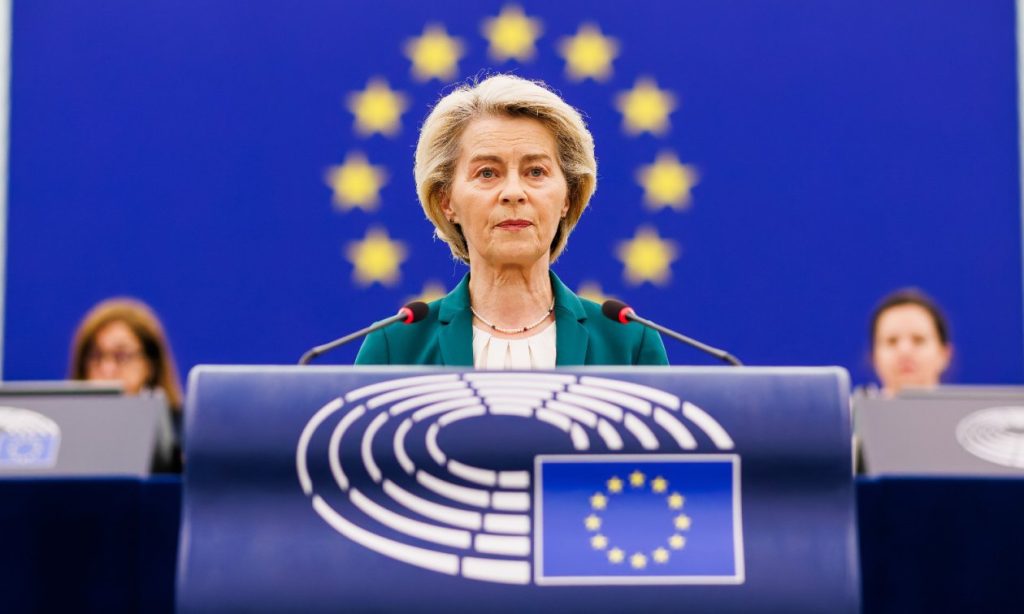Von der Leyen Faces New No-Confidence Motions in European Parliament

European Commission President Ursula von der Leyen is set to face two new no-confidence motions this week, initiated by both right-wing and left-wing groups in the European Parliament. This marks the second time in three months that such motions have been brought forward.
While the motions are not expected to reach the two-thirds majority needed to remove her from office, they reflect ongoing criticism of her leadership and could add to tensions within the Parliament, which plays a key role in passing EU legislation.
The motions are being introduced by French political figures Jordan Bardella of the National Rally and Manon Aubry of France Unbowed. The proposals will be presented on Monday, followed by responses from von der Leyen and representatives of various political groups. A vote is scheduled for Thursday.
Von der Leyen previously faced a similar motion in July, which she successfully overcame with a wide margin of support.
The ability to file no-confidence motions has become more accessible following the 2024 European elections, which saw significant gains for parties outside the political mainstream. Only 72 signatures are required to table such a motion, and the far right now holds more than 100 seats in the chamber. The current left-wing motion has also gained support from a member of the centre-left Socialists and Democrats and several members of the Greens.
The two motions focus on different issues. The right-leaning proposal criticizes the Commission’s environmental policies and its approach to irregular migration. The left-leaning motion raises concerns about the EU’s response to the situation in Gaza.
Both groups, however, have expressed opposition to the recent EU-U.S. tariff agreement, which they view as unbalanced. They also share reservations about the proposed EU-Mercosur trade deal, citing potential impacts on agriculture and the environment.
Votes on these trade agreements are expected in the coming months, though their outcomes remain uncertain.

tayabet https://www.yetayabet.net